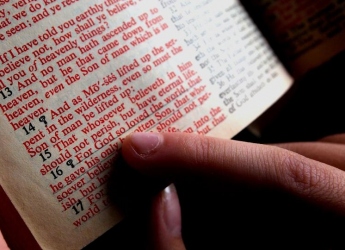Oct 24, 2016 00:00
Fasting is the abstaining of food for a certain period of time. There are different types of fasting in the Bible. Many people in the Bible fasted, including Moses, David, and Daniel in the Old Testament, and Anna, Paul and Jesus Christ in the New Testament. Biblical fasting is often closely linked to repentance, as in the examples of David, the nation of Israel, and the city of Nineveh. Fasting is also related to passionate prayer, as in the examples of King Jehoshaphat and Queen Esther. Biblical fasting comes from a humble heart seeking God. (Isaiah 58:3-7).
The regular fast is done by abstaining from all food, both solid and liquid, except for water. This is the type of fasting Judah’s King Jehoshaphat called for when his country was confronted with invasion. (2 Chron. 20:3). After the Babylonian Captivity, the people returning to Jerusalem prayed and fasted, asking God for His protection on their journey. (Ezra 8:21). The Lord Jesus fasted during His forty days in the wilderness being tempted by Satan. (Luke 4:2). When Jesus was hungry, Satan tempted Him to turn the stones into bread, to which Jesus replied, “Man shall not live by bread alone†(Luke 4:4).
Another type of biblical fasting is the partial fast. The Prophet Daniel spent three weeks fasting from certain foods. (Daniel 10:2-3). Note that Daniel’s fast to express his grief on this occasion only omitted “choice†food, and it also involved relinquishing the use of “oils†and “lotions†for refreshment. Today, many Christians follow this example to abstain from foods or activities for a short time, looking to the Lord for their comfort or strength.
Also mentioned in the Bible is the absolute fast, or the full fast, where no food or water is consumed. When Esther discovered the plan for all the Jews to be killed in Persia, she and her fellow Jews fasted from food and water for three days before she entered the king’s court to ask for mercy. (Esther 4:16). Another example of absolute fast is Saul’s conversion “For three days he was blind, and did not eat or drink anything.†(Acts 9:9). In the cases of Esther and Saul, the absolute fast only lasted three days. However Moses and Elijah took part in miraculous, forty days absolute fasts. When Moses met God on the mountaintop to receive the tablets of stone, he ate no bread and drank no water. (Deut. 9:9). And, after Elijah defeated the prophets of Baal on Mt. Carmel, infuriating Queen Jezebel, Elijah fled for his life and spent forty days of fasting in the wilderness. (1 Kings 19).
Conclusion: The purpose of fasting is not to get God to respond as a genie in a bottle to grant every wish. Fasting, whether it is regular, partial, absolute or sexual is a seeking after God’s heart, all other blessings and benefits being secondary to God Himself. This is what sets apart biblical fasting from other religious and cultural practices around the world.





